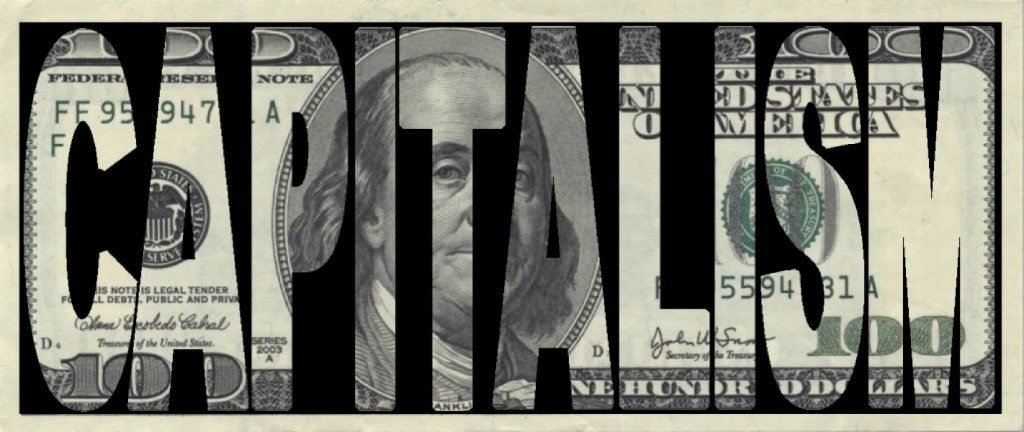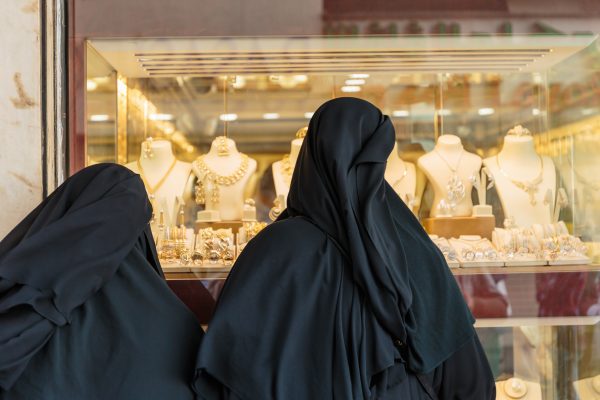If you’re a human being (yeah I’m talking to you BBC) then you know that while Pocahontas’s John Smith was the ideal imperialist dreamboat, his distant relative Adam Smith got the brains of the family. As the father of the free market and capitalism and the godfather of imperialism, Adam Smith established one of the most wide spread economic systems of our world today. But what’s popular isn’t always right so let’s put capitalism under an Islamic lens with the help of Khurshid Ahmad’s The Challenge of Global Capitalism: An Islamic Perspective. After exploring capitalism as its own construct, Islamic economics, and how the two systems fit together, Ahmad contends that there is a need to limit capitalism’s reach to avoid the “market fundamentalism” that leads to exploitation of workers and rampant immorality.
Capitalism
Historically, economic systems remained fairly stagnant until Europe went through Enlightenment. This revolutionary change in academic spheres led to the advent of the capitalist system which brought with it increased efficiency, wealth creation, and innovation (not the bad kind of bid’ah – don’t worry) but at high costs to society. Capitalism focused on the importance of the individual in the marketplace and promoted both private enterprise and the legal protection of business. To begin, this led to great developments in technology and the development of goods and services because it allowed businessmen the freedom to play off of societies needs and wants. Yet soon this new economic system led to the exploitation and human rights violations that are characteristic of Europe’s angsty imperialist phase. Entrepreneurs created close ties with ruling powers to ensure they were favored in the marketplace and to find new opportunities for wealth creation – i.e. The East India Company. Basically, capitalist businessmen found ways to cut costs to the extreme with the help of a little small pox and some casual slave labor.
Ahmad argues that, in a way, trade became a religion for businessmen wherein any means were justified by wealth creation and consumer culture flourished. But this limited capitalism’s growth in non-Western countries where, generally, societies were more collectivist in nature. Plus, in Ahmad’s eyes the capitalist system poses a challenge to its own existence. By cutting costs to the extreme capitalism widens the gap between the upper class and workers – increasing poverty and ridding society of a middle class. There are only so many millionaires in the world and those millionaires only want a couple of yachts tops (one for each day of the week of course). Capitalism thus continuously impoverishes larger portions of society who in turn search for cheaper goods causing businessmen to pay less and less to laborers in order to decrease their goods’ prices. And thus the cycle continues till we’re all pulling a Katniss and revolting against the Capitol(ists machine).
Islamic Economics
The first, and perhaps most important, thing to note with regards to Islam and economics is that Islam as a religion covers every facet of our lives. The laws regarding business and trade are very clearly defined within the religion – there are clear boundaries and restrictions. So even to begin, Islamically, pure capitalism is not an option because there will never be an absolutely free market. Wow. Islam oppresses its women AND its businessmen – well I guess consistency is key (This is a joke I promise.)
Furthermore, this integration of spiritual and secular aspects of life means there is no room for pure individualism. The individual is trained to think of himself or herself not only as their own entity but also in relation to God, religious leaders, those who are less fortunate, etc. Thus, a moral system is tied in with an economic system, forcing entrepreneurs to think not only of bottom lines and profit margins but also the good of society and maintaining a basic level of quality of life for everyone. And truthfully even if you’d like to #tbt to the Pharaoh’s slave labor times, Islamic government is set up to facilitate the redistribution of wealth. So if you needed any more clear signs that pure capitalism and Islam are not a match made in Jannah, there it is. Ahmad mentions that Islam not only relies on governmental social security but also private charities (giving sadaqa). While it is true that privatized charities exist in great numbers in the Muslim community, the presence of such a large and regulatory government dashes any hopes of a pure Muslim capitalist society.
At the end of the day Ahmad purports that while some of the fundamentals of capitalism support societies and markets so they may grow and flourish, left unchecked it allows for a disregard of morality and turns into an excuse for hegemony and exploitation. So go ahead and cancel your dinner plans with the HSBCs of this world because corporations are not people and capitalism does not make the world go round.






